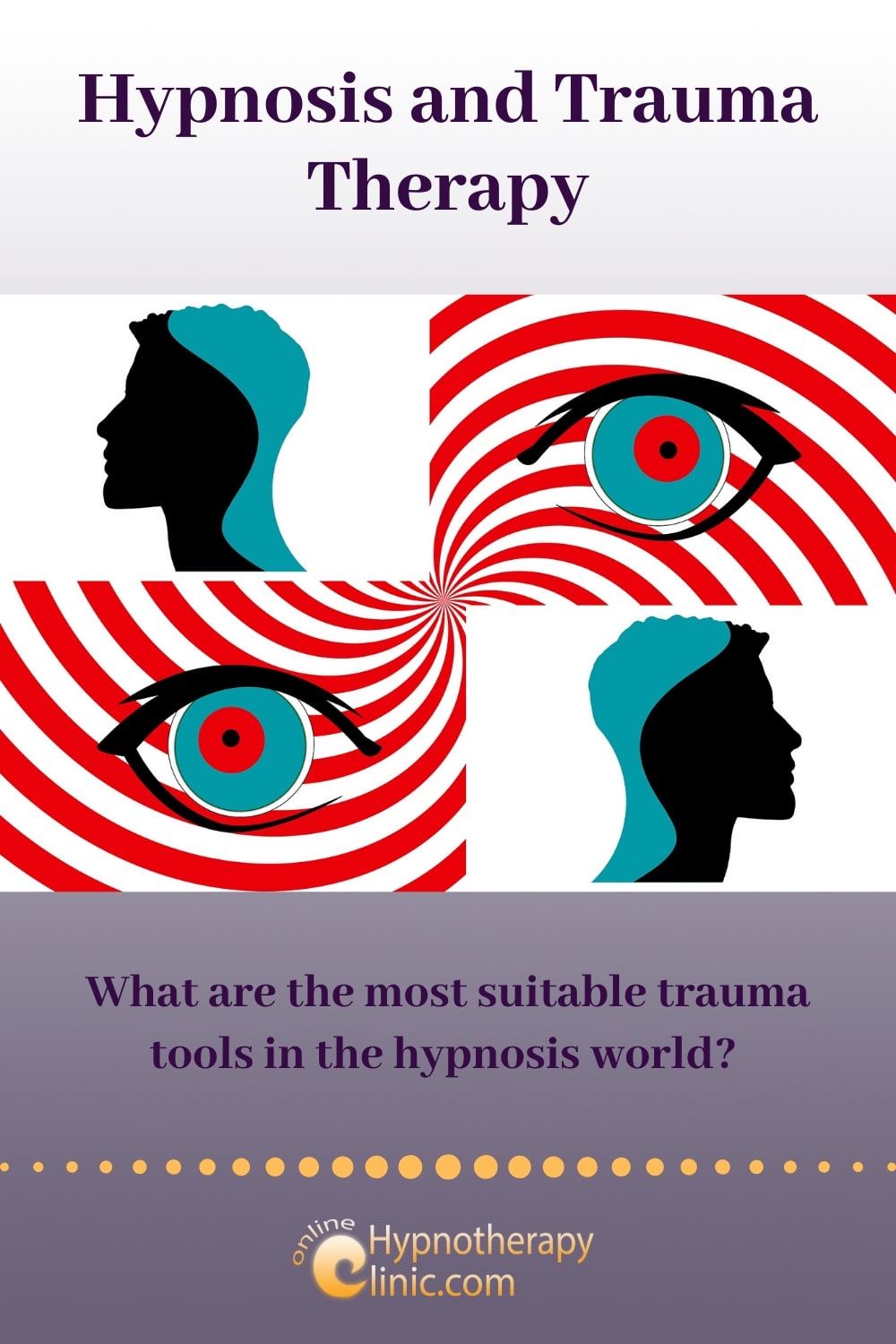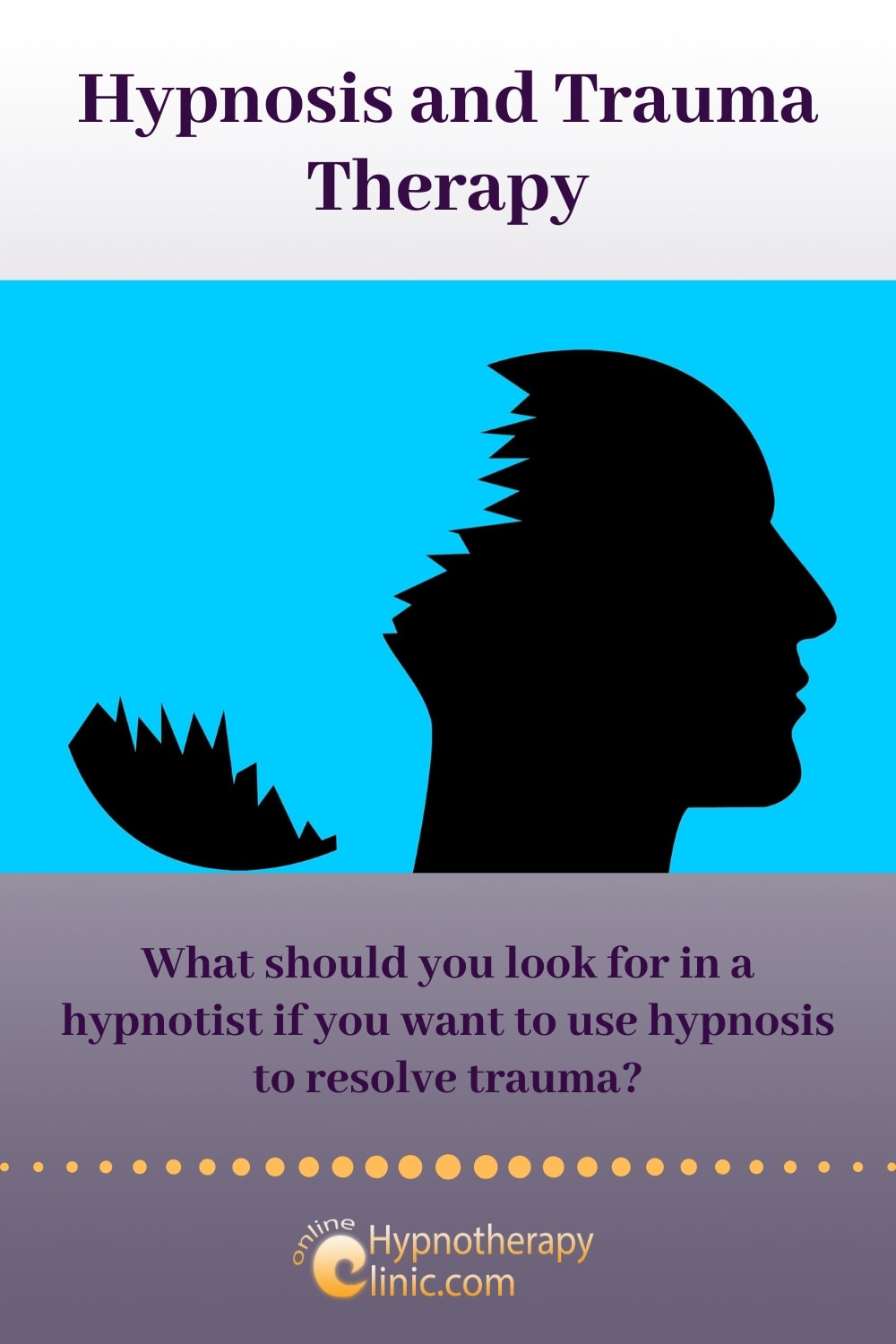Hypnosis and Trauma Therapy
By Susanna Sweeney, MSC, MBACP, CHT
What should you look for in a hypnotist if you want to use hypnosis to deal with trauma?
Mentioning hypnosis and trauma therapy in the same sentence is not that common. Hypnosis continues to be viewed with suspicion and prejudice and continues to exist on the fringes of the therapy world.
This article is devoted to breaking these hypnosis myths and to re-frame hypnosis as a powerful tool that can help you overcome trauma.
Firstly let me make it clear that there are currently two major and predominant camps in the hypnosis world- there are those hypnotists who were trained in school following the Dave Elman tradition, and there are those trained in schools following the Ericksonian tradition. The essential difference here lies in how each of the two approaches views trance and proposes to bring the conscious mind offline so that the subconscious can be worked with directly.
Once the conscious mind is taken off-guard, and you have an opening where you could conduct actual therapy work with the subconscious, most hypnosis schools in either tradition unfortunately still rely on teaching their students how to use scripts.
A hypnotist who uses a script, practices only suggestion hypnosis, which can be good, and I advocate it for the purposes of self hypnosis at home- but for use in a session with a practitioner mostly let’s the client down as their real live issues won’t be addressed.
Hypnosis and Trauma
Those trained in regression hypnosis will have a session protocol that is much more flexible and can get at the client’s deep seated issues at least to some extent through live interaction during the session. I am using the phrase ‘to some extent’ because although powerful, regression hypnosis is still somewhat cumbersome if you compare it to, for example, hypnosis for permanent and rapid change.
A fast acting content free method like the one above offers excellent trauma tools. There are also some excellent trauma tools derived from Neuro Linguistic Programming that are designed to help process traumatic memories that come in the form of intrusive thought, as nightmares or as flashbacks.
What are you looking for in your hypnosis trauma therapist?
Scripts
Steer away from anyone who works mostly or exclusively with scripts. Working with scripts basically means the hypnotist will read out a prepared text to you to impress some issues upon your subconscious. While often very powerful, suggestion hypnosis is not enough, and I would even go as far as to say, unsuitable for processing trauma.
Abreactions
You want to work with a hypnotist who is experienced in working with what is called ‘abreactions’ in the hypnosis world, and essentially describes a client becoming upset and crying, or feeling anger or rage or some other strong emotion during the session.
Many script based hypnotists have been told that abreactions are to be avoided and are an undesirable by-product of hypnosis. For me, abreactions are the gold of the session. When I see them I know the client is getting somewhere and working with the core of the matter, and that change is on the way as a result.
The golden rule in therapy is always that you can only accompany your clients as far as you have traveled yourself. And personal work is not always part of hypnosis training. Therefore you need to pick your practitioner carefully and assess carefully the level of experience they do have with hypnosis and trauma.
See my golden nuggets in my article on life regression hypnosis on how to find the right practitioner for you.
A Deep Understanding of Trauma
As well as following those tips, you want to work with someone who has a deep understanding of trauma science. Why? Because somebody’s theoretical understanding will determine the nature of how they work with you.
There is also an advantage in you understanding the symptoms of trauma and what trauma is. This little bit of theory will likely help you feel less overwhelmed by what is happening with you.
Content Free Work
If you have trauma you want to process, and don’t want to discuss the details of the traumatic memories (and many trauma survivors don’t, so you would not exactly be the odd one out), look for a hypnotist who works content free.
You still may have to give the headlines for the nature of the memories you are dealing with, but this will save you from having to disclose painful details and with trauma, from experience, the real charge is often in the detail.
Lowering the Traumatic Charge
Getting back control over intrusive memories and thoughts will be your uppermost concern if you have been diagnosed with PTSD.
There are various tools and modalities out there that can help you lower the traumatic charge. What I mean by traumatic charge is the hyperarousal of your nervous system that automatically kicks in once the traumatic memory is activated. This hyperarousal will lead to increased adrenaline and cortisol. It will have your heart beating faster and may activate flashbacks and other forms of intrusive memory.
Havening Techniques® have an event protocol which can reliably and almost effortlessly discharge the traumatic stimulation by breaking the link between the cognitive and emotional parts of the memory. In other words, at the end of working with the incident or event and going through the protocol with the help of a practitioner, you will still have the memory, but the feelings connected to it will be gone or almost gone.
Kinetic Shift® hypnosis can work in similar ways and I already discussed certain NLP techniques suitable for lowering the impact of flashbacks and intrusive thought.
More About Healing with Hypnotherapy
More About Healing with Hypnotherapy
Hypnosis and Trauma
What are the most suitable trauma tools in the hypnosis world? What should you look for in a hypnotist if you want to use hypnosis to deal with trauma?
Free Yourself From Depression With Hypnosis
Hypnotherapy for Mental Health
Find out why hypnotherapy is so well suited to reducing and ultimately clearing mental health symptoms such as anxiety, depression and low self esteem symptoms.
Depression Self Help- The Ultimate Guide
This comprehensive guide introduces you to easy and effective concepts, tools and processes you can use at home to help improve your symptoms of depression.
Depression Hypnosis- 7 Major Benefits for You
Depression hypnosis is often the last option considered on a long list of depression interventions. In this article I will make the case for seven major benefits in store for you when you choose to work with depression hypnosis.
Hypnotherapy for Depression- Jason's Story
In this article, meet Jason- a client who attended me for hypnotherapy for depression. His story is designed to give you a good, realistic feel for the 'before and after' snapshots, so that you know what you can expect from hypnotherapy for depression.
Hypnosis for Depression- Jason's Journey Towards Recovery
Find out what a typical journey of recovery from depression looks like when you use a thorough hypnotherapy program.
Self Hypnosis for Depression- 9 Major Benefits for You
Self hypnosis for depression is a much underrated self help tool. In this article I will make the case for nine major benefits for you if you decide to use this fantastic self help tool.
Improve Your Self Esteem With Hypnotherapy
Find out tools, tips and ten steps on how you can support yourself in building your self esteem.
Self Esteem Hypnosis- Does it Really Work?
In this article i discuss the available scientific evidence that backs self esteem hypnosis, present a client case study that demonstrates how hypnosis for self esteem can change your life, and finally outline five major benefits of self esteem hypnosis.
Hypnosis for Self Esteem- Why Most People Should Consider it
Here, I make the case for self esteem hypnosis to be used as a cornerstone of any hypnosis program. Find out why...
The Most prominent benefits of self esteem hypnosis which can help you change your life for the better.
Boost Your Confidence With Hypnosis
Hypnosis for Confidence- A Success Story
This article gives you an insight into client work and how confidence hypnosis helps people change their lives.
Confidence Hypnosis- Could it Benefit You?
In this comprehensive article, find out what confidence hypnosis is, how it works and what it could do for you.
Find out if self hypnosis is the right tool for you for building confidence.
Get Rid of Fears and Phobias With Hypnosis
Hypnosis for Fears and Phobias- How it Can Help You
Hypnosis for fears and phobias is a fast, efficient and safe way to help you become symptom free and regain your quality of life. In this article learn what causes fears and phobias, how they present, how hypnotherapy can help and what scientific findings exist.
Improve Your Sleep
Learn how to reset your life for regular, peaceful sleep in 10 easy steps.
Find out 7 tremendous benefits this work could hold for you.
Insomnia Hypnotherapy- Does it Really Work?
Find out the science behind hypnotherapy for sleep.
7 Wonderful benefits sleep hypnosis has in store for you.
Migraine Hypnosis
Migraines are a serious issue affecting as many as one in 20 women and one in 15 men. Find out how migraine hypnosis can benefit you as part of your migraine relief plan.
Overcome Stress and Achieve Relaxation With Hypnosis
Hypnosis for Stress- Get Your Equilibrium Back
This article is designed to introduce you to hypnosis for stress relief, to what it is, why it is a suitable tool for overcoming toxic stress and on what it can do for you.
Hypnotherapy for Stress- A Success Story
Follow my client Jeffrey from being totally stressed out to getting back in charge of his life. See what's involved with hypnotherapy for stress reduction so that you can decide if you might want to give it a go.
Self Hypnosis for Stress- 5 Major Gains for You
See how you could benefit from self hypnosis for stress.
Find out how hypnosis for relaxation compares to other relaxation methods such as relaxation music and guided visualization.
How Relaxation Hypnosis Can Help You Change Your Life
This article is designed to introduce you to relaxation hypnosis, its benefits, how it works and why it may be help you to change your life.
How Relaxation Self Hypnosis Can Benefit You in 6 Ways
Find out how you could benefit from self hypnosis for relaxation so that you can decide if it is right for you.
Self Hypnosis Relaxation Techniques for You
Learn self hypnosis relaxation techniques that you can start to use at home today.
I hope you have found this article helpful in guiding you towards the kind of training and experience to look for in a hypnosis trauma therapist.
In the comments below let our community know what you think.
Regards,

Recent Articles
-
Havening Technique Training auf Deutsch
Apr 18, 25 02:59 AM
Havening Technique Training auf Deutsch- Details und Buchung -
Client Testimonials
Oct 06, 23 06:08 AM
Client Testimonials of my Online REPAIRenting® Program that uses various psychosensory approaches for safe and quick transformation -
Smoke Free Thanks to This Amazing Resource
Aug 02, 23 09:26 AM
Oh thank you for this simple resolution to all my worries! I feel like I have had a weight lifted off my shoulders. It is like cheating on giving up smoking.



New! Comments
What do you think? Leave a comment in the box below.